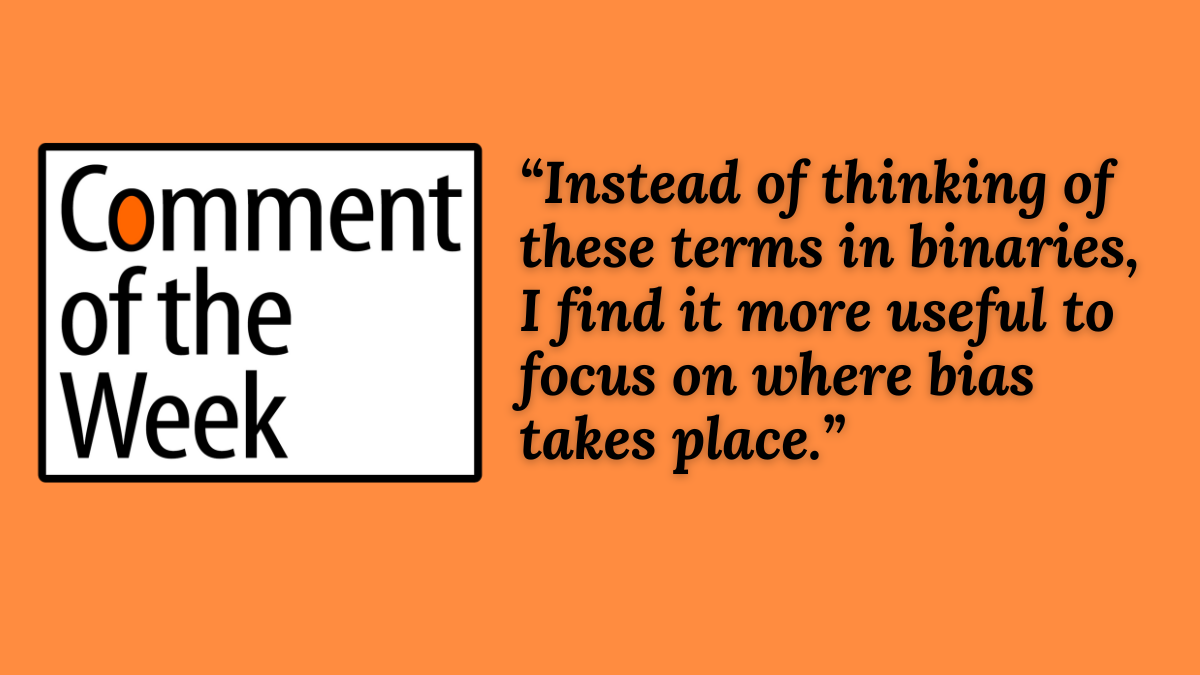Emotions ran high and so did the comment count. As the mayor’s race grows increasingly contentious, I’m expecting the BikePortland comments sections to reflect that and to become pretty turbulent places. It’s probably inevitable that some of that froth blows back onto BikePortland itself.
Deep into the thread of the Street Trust/Carmen Rubio story, after readers had exhausted all that could be said about traffic tickets, some turned to the subject of bias in reporting. I wrangle with that topic nearly every day, and I imagine Jonathan does too.
After some back and forth between Jonathan, myself and several commenters, Phillip Barron took up the theme and did right by it in a few thoughtful paragraphs.
Here’s what he wrote:
The idea that journalism is not objective is really not all that controversial. Neither is the idea that bloggers can be journalists. But nor does that mean that newspapers are worthless or that any blogger is a journalist. I have no problem with Fox Vanilla’s thought above or with classifying BikePortland as journalism. It seems pretty obvious that Jonathan and Lisa are journalists; they report on what they (and an ever changing team of writers) deem newsworthy for the bike-interested readers of Portland.
A good wikipedia page cites its sources, which if you were curious, you could follow and see if you accept those references. Or, perhaps, you will accept references to what you seem to think is the standard bearer in journalism, the NYTimes.
The NYTimes seems not to have a problem with either admitting that journalism is produced with bias (1) or with acknowledging that blogs are organs of journalism.(2)
Instead of thinking of these terms in binaries (either one is biased or one is not; either one is a journalist or one is not), I find it more useful to focus on where bias takes place. In journalism, bias affects everything from what a journalist thinks is newsworthy, what an editor thinks deserves front-page coverage, which articles a layout editor decides deserve photographs, which op-eds a publisher chooses to print, how much rope an editor will allow an investigative journalist when the IJ is looking into a scandal involving the newspaper’s owner (I’m looking at you, Washington Post) and so on. Bias affects photographers in how they frame a shot and, as Errol Morris (while writing for the NY Times) notes, what they leave out. (3) We all become much better readers of journalism the more we are actively aware of these biases.
Thank you for taking the time to write that, Phillip. You can read Phillip Barron’s comment, and the rest of the back and forth, under the original post.


